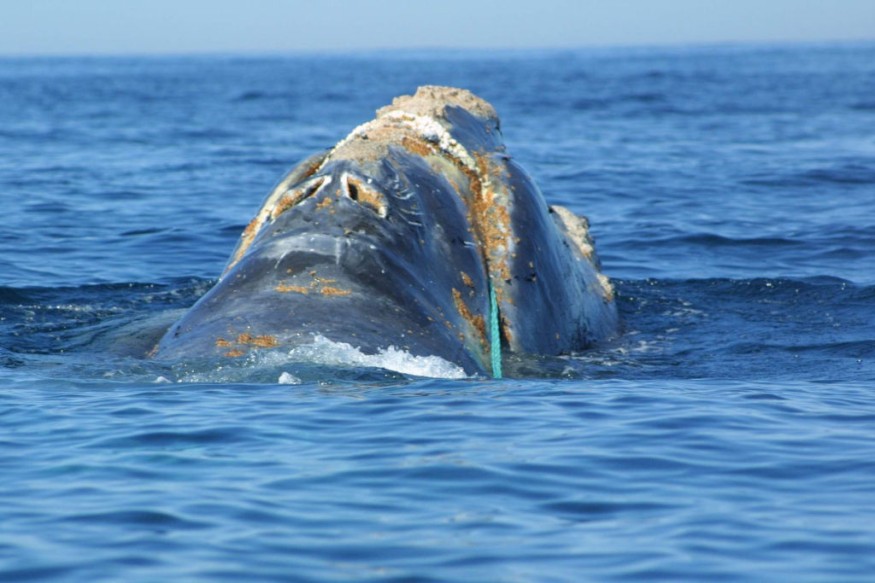The once severely soon extinct animal, North Atlantic right humpbacks have reached their lowest current population in over 20 years, according to experts.
The wildlife has been declining sharply beginning roughly in the year 2011 and researchers believe people are mostly the responsible of this occurrence.
According to the North Atlantic Right Whale Consortium, the humpback figure had fallen by 8% from an anticipated 366 in year 2019 down to 336 in year 2020. Moreover, the organization said that it is the creatures' lowest average count in in two decades.

To biologists, the creature's population has fallen by 30% in merely a decade.
"We are definitely disappointed by such projection; however, we are not stunned," remarked by the associate scientist at the New England Aquarium's Anderson Cabot Center for Ocean Life, Heather Pettis.
"The right humpback scientific and protection programs recognize that, though significant attempts have been made to modify the animals' course, they have not yet been sufficient."
North Atlantic Right Whale Population Continues to Decline
As of 1970, right whales were designated as vulnerable under Endangered Species Act, as per the National Oceanic and Atmospheric Association (NOAA), the said marine mammals is among the world's critically threatened large mammals.
The North Atlantic Right Whale Consortium's head, Scott Kraus, blamed people for collapse of population, stating, "There really is no doubt that man actions are pushing this creature into extermination."
The investigators explicitly cited the implications of the fisheries sector on humpbacks.
Per the aquarium study, 86% of recognized right whales had become caught in gill nets at least once. Thus, making maritime hits and fishing equipment interferences are the greatest risks to the animals, according to the New England Aquarium.
Global warming is indeed a major consideration throughout the animals' downturn.
Fundamentally, scientists determined that climate change is one of the reasons whales are driven to travel to risky places to survive. Scientists discovered the places where they have relocated had less safeguards in place to avoid naval collisions and fisheries dangers.
Fishing Gear entanglements: "Biggest Threats" To Whales
As said by New England Aquarium, at least two recorded North Atlantic right whale fatalities occurred this year. In February, one of the whales was struck by a leisure merchant ship while lambing off the coast of Florida leaving the other entangled and emaciated.
Furthermore, the aquarium claims that the aggregate rate of incidents mortality rates this year has been modest, which is commendable. Though only 36% of right whale mortality rates are discovered on average.
The museum also mentioned a study published in Current Biology last June that found right whales' mass has fallen in the last 40 years.
For the experts issues in fishing equipment and other occurrences are impeding the species' development, with grownups nearing a full-grown size about three feet lesser than one conceived in 1980.
Scientists discovered that calves of whale parents who became conflated are also relatively small.
Nonetheless, right humpbacks are an amazingly strong mammal, according to Kraus, and he believes they can come back if granted enough assistance.
So far, investigators have recorded 18 mother-calf right humpback sets this year, suggest the pose for positivity notwithstanding the being only the annualized rate of 23 pairs.
"No one involved in right whale research appears to believe the creatures will not rebuild," Kraus stated.
Experts claim that rescuing the population will necessitate brighter and more prompt response, evoking requests made in 2017 that the species might become exterminated if any such steps are not taken.
"We as living creatures have placed these humpbacks in this situation, and we have the capacity to support them out," Pettis told reporters. "To ensure this species' survival, broad collaboration and a long-term commitment are required, as well as immediate actions to prevent entanglements and collisions with vessels."
© 2025 NatureWorldNews.com All rights reserved. Do not reproduce without permission.





